As Coutts anti-mandate blockade continues, Alberta government plans to drop vaccine passports
Without admitting it's bowing to truckers' demands, Alberta
government seems to be bowing to truckers' demands

This column is an opinion from Graham Thomson, an award-winning journalist who has covered Alberta politics for more than 30 years. For more information about CBC's Opinion section, please see the FAQ.
Sow the wind, reap the whirlwind.
Or in this case, sow the conflict, reap the cross-border blockade.
On January 22, Premier Jason Kenney declared in a tweet that "Ottawa's trucker vaccine mandate has to go."
Days later, a truck convoy of protesters angry at the vaccine mandate began tying up an Alberta-Montana border crossing.
That's not to say Kenney was actively encouraging unruly demonstrators to lay siege to the Coutts crossing as a protest against the federal government. But Kenney knew about the anger building among a minority of truckers who had chosen to be unvaccinated and therefore unable to freely travel across the border.
He has supported truckers' right to protest whether in Ottawa or in Coutts as long as they "do it in a way that's respectful."
But Kenney made it sound as if those Freedom Convoys had a legitimate chance of forcing the Canadian government to reverse the vaccine mandate on cross-border truckers; just as he made it sound like his trip to Washington D.C. last weekend could help convince the American government to reverse its own identical vaccine mandate on cross-border truckers.
Watch| Kenney says province ready to lift restrictions soon
Premier Jason Kenney says as pressure decreases on the health-care system so too will province’s public health restrictions, starting with the Restrictions Exemption Program. 2:47
Neither tactic had any chance of success. The cross-border mandate was an international agreement not open to cancellation by a convoy of dissenters representing a minority of Canada's trucking industry.
But the convoys remain: one making life miserable for people in downtown Ottawa and another making life miserable for people at the Coutts border crossing.
The protestors might be comforted to know that Kenney shares in their misery, at least when it comes to their actions at the Montana border.
Alberta's blockaders have turned their ire toward the Kenney government and its pandemic mandates, most notably the province's vaccine passport, or as Kenney euphemistically named it last September, the Restrictions Exemption Program (REP).
Some truckers have claimed they've been in unofficial, backdoor negotiations with the Alberta government the past few days to lift the REP in exchange for an end to the blockade.
The government has denied any such talks.
However, it would seem the government is suddenly in a rush to end the REP.
In a Facebook live appearance Thursday night, Kenney announced that "early next week, Alberta will announce a firm date to end the REP."
That's a rapid change from Kenney's position just last week when he said the REP might be lifted by the end of March. On Tuesday this week, as the Coutts blockade remained firm, he said he might scrap the REP by the end of February.
On Wednesday, as the police proved unable to end the blockade, the chair of the UCP caucus issued a statement saying the REP would be lifted "likely within days."
On Thursday, with a second blockade popping up near Coutts, the government began to organize internal opposition to its own REP by circulating an email to its MLAs giving them approved talking points to speak out against vaccine passports.
This opened a rhetorical dam and allowed a coterie of rural MLAs who have been itching to speak out against vaccine mandates the freedom to shout their opposition from the rooftops.
Among them, Environment Minister and Government House leader Jason Nixon who issued a statement Thursday afternoon, saying, "I have been making it clear to the Premier and my colleagues that I oppose the continued use of the Restrictions Exemptions Program."
Scrapping the program, though, will create a number of problems for Kenney.
Placate the base
Most damaging is the appearance he is caving in to the truckers and their illegal blockade, not just because he wants to clear the Coutts crossing but because he is once again desperate to placate his conservative base in rural Alberta as he faces a leadership review by United Conservative Party members on April 9.
Another is the apparent hypocrisy of a government that talked tough against anti-pipeline blockades by First Nations protestors in 2020 – sparking the introduction of the Critical Infrastructure Defence Act – but sounded much less aggressive this week when dealing with anti-vaccine-mandate truckers.
Then there are the warnings from health-care professionals worried that lifting the vaccine passport system will lead to a spike in COVID cases. And municipal politicians, including Edmonton Mayor Amarjeet Sohi, are looking at crafting their own pandemic measures if Kenney acts "too soon and too fast."
But Kenney isn't focused on Edmonton these days. It's all about Coutts and angry truckers and a Conservative base in rural areas that he's counting on to support him during that leadership vote.
Once again he seems to be playing both arsonist and firefighter.
If he inadvertently helped inflame the truckers' rebellion on the Montana border, he is no doubt hoping he can now help extinguish the flames by tossing the Restrictions Exemption Program into the fire.
Alberta COVID cabinet committee seeking to remove Restrictions Exemption Program, restrictions in near future
Feb 4, 2022 | 12:36 PM
Premier Jason Kenney hinted on Friday morning that COVID-19 restrictions and the Restrictions Exemption Program (REP) could be a thing of the past in the coming months.
Kenney took to social media on Friday to announce the COVID cabinet committee will approve a plan next week to lift restrictions, starting with the Restrictions Exemption Program.
“Thanks to our high levels of vaccination, Omicron has been much less severe than earlier COVID variants,” said Kenney. “We are not out of the woods yet, but based on the experience of other jurisdictions around the world who got hit by Omicron earlier, we can expect the pressure on our healthcare system to continue to ease.
“We are in a much better position to manage future waves of COVID, thanks to the 90 per cent of Albertan adults who have received at least a first dose of vaccine, plus more widespread immunity from prior infection, and on top of that more new antiviral medications.”
Kenney added at the time, implementing the Restriction Exemption Program was the right thing to do in order to let Alberta businesses stay open during the fourth wave of the COVID-19 pandemic, as Omicron is more likely to cause breakthrough infections even if you are fully vaccinated.
“We introduced this proof of vaccination program reluctantly to avoid a catastrophe in our hospitals during the Delta wave in September when Alberta and Saskatchewan were hit hardest because we had the lowest level of vaccination in Canada,” he explained.
“When the REP was introduced, vaccines were still very effective at limiting transmission and infection. The REP led to a major increase in Alberta’s vaccination rates, which honestly has saved many lives and helped us to avoid cancelling thousands more surgeries during both the Delta and Omicron waves. The REP has done its jobs.”
“With much higher levels of vaccination and lower levels of preventing infection from vaccines months ago, the rationale for the proof of vaccination programs like Alberta’s REP is not as strong today as when we introduced it in September,” Kenney added.
Kenney still encourages every Albertan to get a vaccine to help prevent severe COVID-19 infections.
“Vaccines are still tremendously powerful at preventing severe outcomes like hospitalization and death. The single best thing you can do to help us open quickly, stay open, and to keep yourself safe is to get your booster shot.”
More details will be announced on the lifting of COVID-19 restrictions starting next week.
Kenney added if hospitalizations continue to drop, the lifting of restrictions could come sooner rather than later.
“We will also layout a simple phased plan to remove almost all public health restrictions later this month, as long as we see a trend of declining pressure on our hospitals.”
“I know some people will say all of this is too early and that we should chase a policy of COVID zero and it’s all too risky. But friends, after two years of this, we simply cannot continue to rely on the blunt instrument of damaging restrictions as a primary tool to cope with a disease that will likely be with us for the rest of our lives. We must find a way to get our lives back to normal.”
Braid: Vaccine passports on the way out next week as UCP caucus hits boiling point
'Early next week the COVID cabinet committee will approve a plan for the careful lifting of public health measures, beginning with the restriction exemption program,' Premier Jason Kenney said Thursday evening on Facebook Live
Author of the article: Don Braid • Calgary Herald
Publishing date: Feb 03, 2022 •
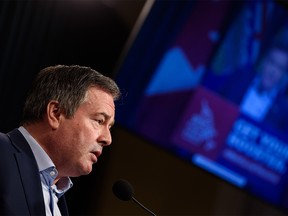
On Facebook Live on Thursday evening, Premier Jason Kenney said: “Early next week the COVID cabinet committee will approve a plan for the careful lifting of public health measures, beginning with the Restrictions Exemption Program.”
He promised “a firm date to end the REP and do it in the very near future.”
That still won’t please the large and impatient anti-passport crew in his caucus. They’ve reached peak anger over the program and want it to vanish immediately, especially with more demonstrations and blockades threatening over the weekend.
Their frustration escalated Wednesday evening, when the premier’s communications people told MLAs during a virtual caucus meeting that they’re free to say the passports are now less effective.
A later communications note to caucus reinforced the point: “The REP has not been particularly effective at limiting the spread of Omicron.”
And yet, after caucus got that message, Health Minister Jason Copping came on the call and defended the passport system.
David Hanson, the UCP member for Bonnyville-Cold Lake, says he’s baffled and angered by Kenney’s delays.
“If we’re gonna remove it anyway, just remove it right now,” he told me Thursday. “I don’t see the value of putting it off. We’ll just have more trouble with demonstrations over the coming weekend because it’s still there.”
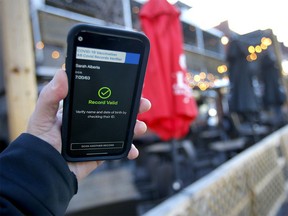
The decision on passports will go to cabinet’s priorities implementation committee on Monday, as all such rulings do.
Even the committee breeds mistrust, however, because six of the 10 members are from Calgary.
Rural MLAs feel their views aren’t represented by big-city types.
Those MLAs believe they’ve now got a strong caucus majority on their side.
During an earlier virtual caucus meeting on Monday, MLAs were asked if they agreed with ending the passport requirement at once.
Not one person disagreed, according to people who were on the meeting. I won’t name sources because revealing details of caucus meetings is grounds for an MLA to be thrown out.
Some UCP members weren’t on the call and ministers were keeping quiet. Only the MLAs from north of Red Deer actually voted.
But since everybody had a chance to speak against the question, and nobody did, people who participated took it as a powerful endorsement of the call for instant abolition.
The following day, Tuesday, MLAs were further angered when the cabinet committee that approves measures met but didn’t discuss the passports.
UCP members were also told Monday that if they want to disagree with government legislation in the future, they have to get approval in advance to speak out.
A three-tier system based on the type of bill was described, but MLAs took it as a sign that Kenney’s long-standing promise of free debates is over.
Hanson says: “I’m not going to let somebody’s rules stop me from doing my job. I’ll just speak out. It doesn’t always win points with the boss but at least I can sleep at night.”
He wants Kenney to quit. “I’ve firmly lost confidence in leadership, and so have a lot of others.”
Kenney may feel that by sticking to his process for ending restrictions, he shows he’s not giving in to lawlessness on the blockades.
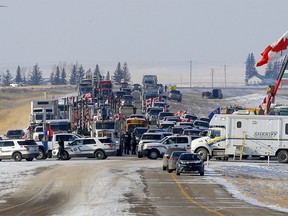
But he has already publicly moved his target from the end of March, to somewhat earlier, to very soon. Few people will believe that he isn’t already pushed by internal divisions and external protests.
Now, Kenney is obviously pressured even more by truckers’ protests and blockades.
My own view is that restrictions, including the passports, should stay in place until the Omicron wave fades to a lower level.
Ditch them then, by all means, but not when the risk of infection and hospitalization are still so high.
But the vaccine passport system is as good as dead already. Only the burial remains.
Don Braid’s column appears regularly in the Herald
Twitter: @DonBraid
Facebook: Don Braid Politics
Stephanie Thomas
CTV News Calgary Video Journalist
Published Feb. 4, 2022
As Premier Jason Kenney signals an end to all restrictions including the vaccine passport program, he warned that Alberta cities should not act on their own on pandemic health policy, which is concerning city leaders.
Kenney first singled out municipalities during a Facebook live event on Thursday.
He said the province will announce a phased removal of public health restrictions early next week and said in order to block municipalities from "improvising" their own policies he would "take a look at" amending the Municipal Government Act (MGA).
On Friday, Kenney doubled down.
"I would encourage municipal elected folks to respect the decisions that the province makes on public health matters and not to improvise public health policy. If they want to provide us with input, I'm always happy to take that on board, but at the end of the day, we all know now we have to learn to live with COVID," he said.
Calgary Mayor Jyoti Gondek says municipalities are not at the table with the province for discussion on public health restrictions.
"(The province) is not a government that wishes to partner with municipalities," said Gondek.
She says the laws that govern municipalities are clear and provide jurisdiction over citizen's public safety and there is concern the premier is prioritizing rural Alberta over urban centres.
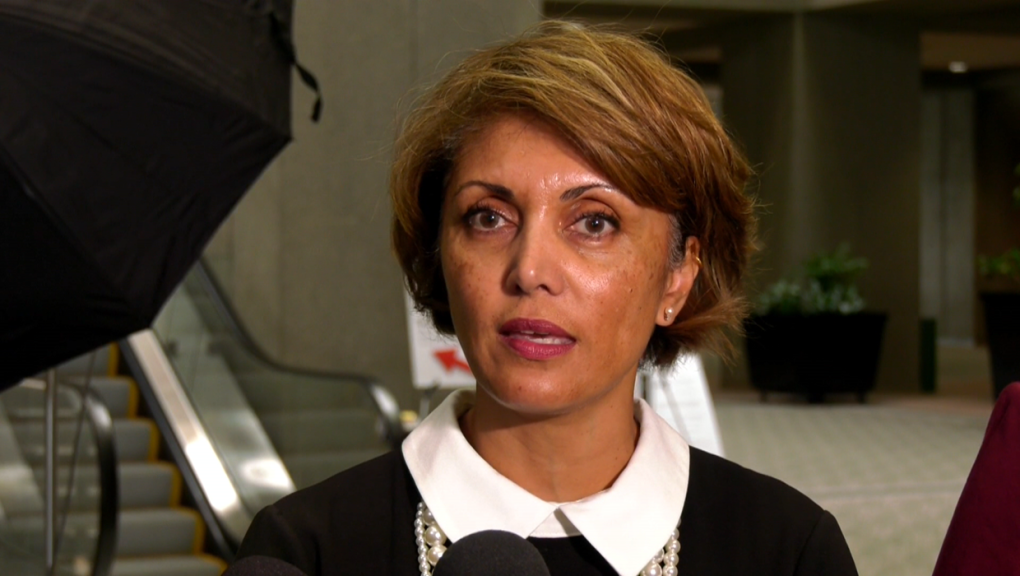
"If that's the case, then it is absolutely shameful that a premier who should be leading a province in a public health emergency is prioritizing politics over public health."
Health and municipalities are under provincial jurisdiction, but the City of Calgary has acted on its own before.
One example is in August of 2020, Calgary introduced city-wide mask bylaw before the provincial requirement.
The other occurred in fall of 2021 when the city created a bylaw making the provincial restrictions exemption program mandatory for businesses and institutions in Calgary -- which will be rescinded after the province cancels the Restrictions Exemption Program.
If the city wants to extend this bylaw, it would have to pass another one.
PUBLIC HEALTH DATA REPORTING
Ward 11 Councillor Kourtney Penner is also concerned public health data reporting would stop being supplied to cities.
"I believe the premier was alluding to is that, along with the removal of provincial health measures, they could also remove data reporting. And so then how would cities make decisions without provincial data?" She said before adding, "Without being able to be at the table and have those conversations about how we approach health measures, we are left reacting rather than being able to proactively plan for how we manage and mitigate the risks that COVID presents."
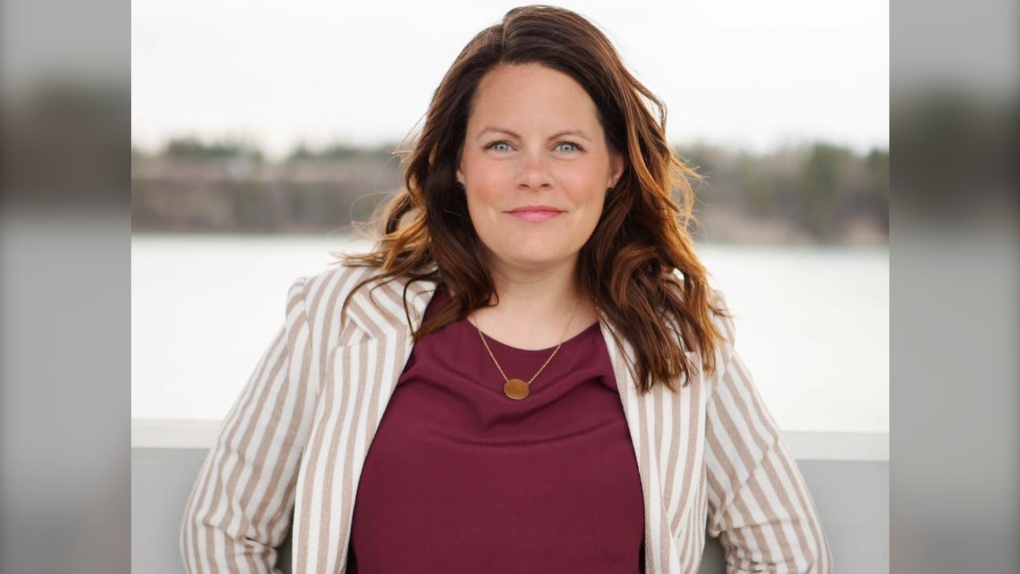
Other Alberta city mayors say they don't expect the province will act to restrict municipalities from carrying out its community responsibility...
"I am committed to exploring options that are within our authority to continue to protect our communities and the most vulnerable Edmontonians including kids who are unable to be vaccinated at this time. I hope that the provincial government will reconsider removing restrictions too quickly," said Edmonton Mayor Amarjeet Sohi.
Lethbridge Mayor Blaine Hyggen tells CTV news that municipalities can act providing public safety measures to protect citizens, and the province is not able to intervene.
In a statement from the Alberta Urban Municipalities Association (AUMA) the premier's comments are called "puzzling and troubling."
"The restrictive approach Premier Kenney is now considering is completely at odds with his government’s earlier direction," said Cathy Heron, president of the AUMA.
Heron adds the topic of amending the MGA has not come up in prior meetings with the government of Alberta and it's not expected to be discussed."
HARM RELATIONSHIPS
The municipal government act has been amended in the past but one legal expert says making this type of change would harm relationships between the levels of government.
"There would be a sense that this would be done out of the premier trying to preserve his political position and perhaps set him up for a future election," said Lorian Hardcastle, law professor at the Cumming School of Medicine at the University of Calgary.
Hardcastle says throughout the pandemic the government has applied hands-off approach at times allowing municipalities, private businesses, schools, universities, to pass public health rules to fill gaps on pandemic policy.
"It would be quite an abrupt course-reversal for the province to actually prevent municipalities or others from filling in the gap left by provincial rules."
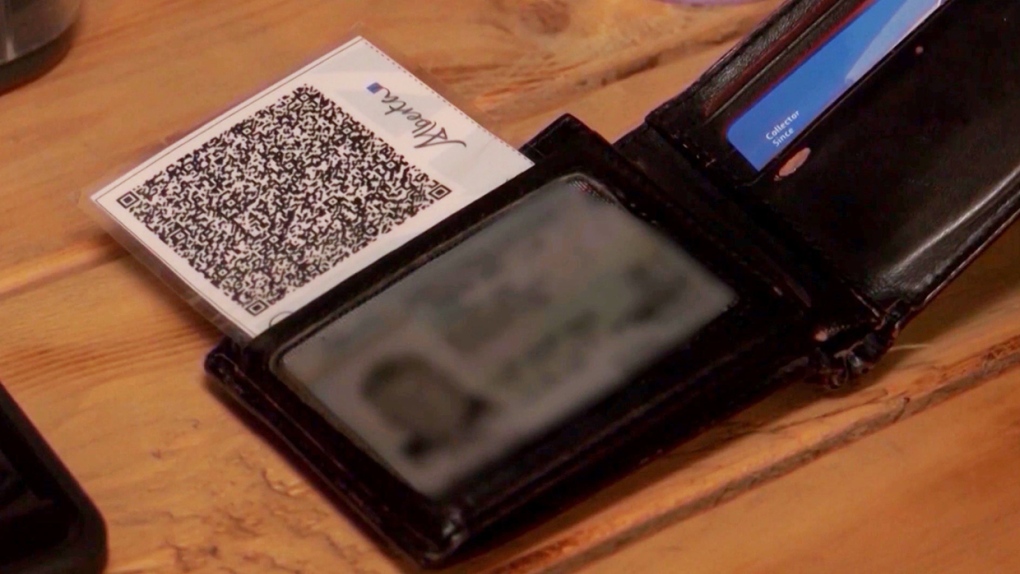
Kenney first singled out municipalities during a Facebook live event on Thursday.
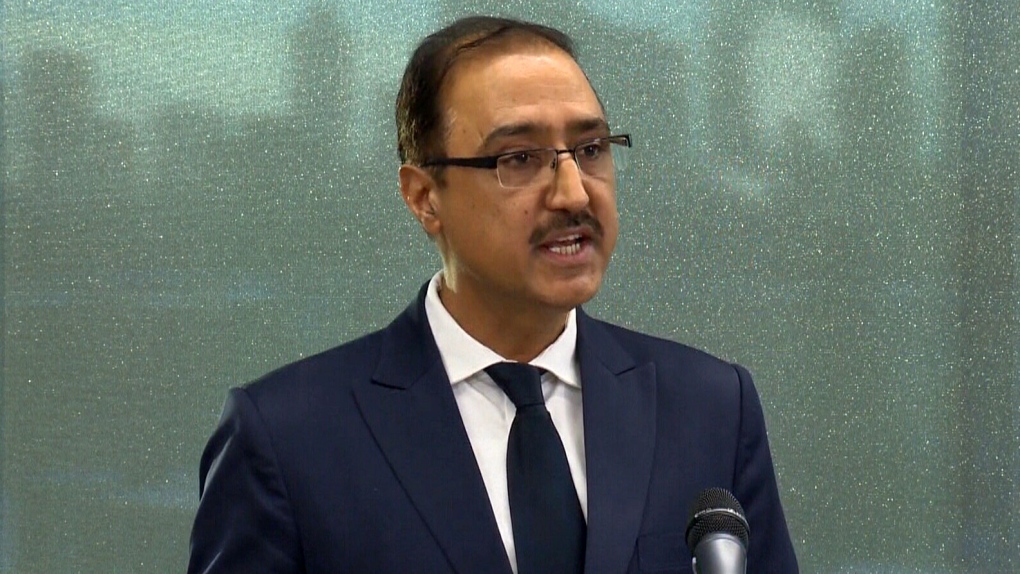
Dean Bennett
The Canadian Press
Updated Feb. 4, 2022
Edmonton's mayor says he expects Premier Jason Kenney will respect local autonomy as Alberta prepares to end its vaccine passport program along with other COVID-19 health restrictions.
Amarjeet Sohi responded Friday after Kenney suggested he may intervene with legislation to stop municipal leaders from imposing their own rules.
Sohi said he worries the province is moving too quickly, given Alberta is still in the Omicron wave of the pandemic.
“Municipal leaders are elected and held accountable by their constituents for making decisions that protect our local communities and residents' well-being,” Sohi said in a statement.
RELATED STORIES
'Not there yet': Sohi says Edmonton may bring in COVID-19 restrictions if Kenney drops Alberta's
“I know that Premier Kenney appreciates each jurisdiction's autonomy and each order of governments' ability to make their own decisions.
“I believe that his government will not restrict our ability to take actions to keep our fellow Edmontonians safe.”
Cathy Heron, head of Alberta Municipalities, an umbrella organization representing towns, cities and villages, said Kenney's announcement came out of the blue.
“We find Premier Kenney's remarks puzzling and troubling,” said Heron in a statement.
“The topic of amending the (Municipal Government Act) to restrict municipal governments' ability to introduce public health bylaws has never been discussed in any meeting held between Alberta Municipalities and the Government of Alberta, and we do not expect to discuss it in the future.”
Heron said that Alberta Municipalities believes local governments need autonomy when responding to this pandemic and its effects on residents.
Kenney, facing low public opinion polls, a looming leadership review, some caucus members upset with COVID-19 rules and an ongoing anti-vaccination mandate protest at the United States border, announced Thursday a stepped-up timetable for removing public health restrictions.
He said his United Conservative government will announce a date next week to soon end the vaccine passport. Most of the remaining health rules, he said, will be phased out by the end of the month if hospitalization numbers remain stable or decline as expected.
Kenney said Alberta's vaccination rate, coupled with stabilizing hospital patient numbers, make it feasible to end the passport program.
Critics say he is pandering to extremist elements in his caucus, party and to protesters at the border.
“By giving in, it encourages others to do the same and make more demands,” said Opposition NDP justice critic Irfan Sabir.
“For a government that claims to be big for law and order, they quickly tossed out their values.”
Sohi said an accelerated health cancellation plan risks harming vulnerable people, including those under age five who are not eligible for vaccinations.
He said the city will look at implementing its own health measures if necessary.
Kenney, speaking to media online Friday after a virtual meeting with other premiers, said provinces are in the best position and have the data to make the best decisions for everyone.
He said that different rules among different jurisdictions just creates confusion.
“What Albertans want is clarity in terms of what the public health measures are,” said Kenney.
“I would encourage municipal elected folks to respect the decisions that the province makes on public health matters and not to improvise public health policy.”
A week ago, Kenney said the passport could be eliminated by the end of March.
Sabir said it's telling that Kenney has previously granted more autonomy to schools to impose their own COVID-19 health rules, saying they were in the best position to determine the unique needs of their students, but now seeks uniformity in rules for municipalities.
“The premier has a track record of flip-flopping,” Sabir said. “When it comes to taking responsibility, he will find a convenient place to shift the blame.”
Also, earlier in the pandemic, Kenney declined to bring in a provincewide mask mandate on the grounds that most municipalities had already done so and that his government respected their right to do so.
Heron said Kenney's change in tack on municipal accountability is puzzling given the latitude given municipal governments earlier in the pandemic to do what they felt necessary to rein in COVID-19.
“The restrictive approach Premier Kenney is now considering is completely at odds with his government's earlier direction,” said Heron.
The passport - known in Alberta as a restriction exemption - mandates anyone using non-essential services such as bars and restaurants show proof of COVID-19 vaccination.
Alberta's program is voluntary, but businesses that do not participate are subject to restrictions, including severely reduced customer capacity.
Since being introduced last September, the passport has come to symbolize the clash within Alberta - and within Kenney's own caucus and party - over balancing public health orders with individual rights and freedoms.
Alberta has 1,584 people in hospital with COVID-19 as of Friday, with 118 in intensive care.
This report by The Canadian Press was first published Feb. 4, 2022.

No comments:
Post a Comment